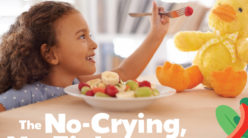If you are a parent, then you are probably already familiar with the impact of children on your personal life. Even in the most functional families, parents who juggle rearing energetic children with careers and other commitments often tell of feeling burned out. Maybe your personal experience with burnout began the week after you brought your newborn home from the hospital and she got her days and nights mixed up. Perhaps it started the day your employer informed you that because of company downsizing, your job was history, and the pediatrician informed you the same day that your child needed his tonsils out soon.
Whatever the monumental interruptions are that you face juggling kids, career, and other responsibilities, I want you to remember one necessity of life: be kind to yourself.
Gifts of Kindness
You see, as the parent of three (one teen and two young adults) I remember all too well the chaotic child-rearing years when all three were home together-the constant ringing of the telephone, stereos blasting in three different bedrooms (and on three different stations), kids laughing or screaming, and the doorbell ringing at all hours of the night, not to mention the mountains of laundry, groceries, bills… and more bills.
I can report that I am a healthy survivor of the parenting years because I realized early on that in the midst of taking care of my children’s needs, I had to make time each day to give myself a myriad of enduring gifts. Consider the following gifts of kindness to a Very Important Parent-you!
Self-care
We all have the right to feel energetic and stay well, but the problem arises when we neglect self-care, then suffer the consequences with fatigue, apathy, or even serious illness. In the midst of caring for your child, it is important to take time to care for your body, mind, and spirit. Taking care of minor problems early on can help you prevent major health concerns as you grow older. It can also ease your mind and give you “one more thing” not to worry about. Check up on the following gifts:
- Annual physical and diagnostic tests.
- Six-month dental exam.
- Immunization update.
- Eye examination and new glasses, if needed.
- Family health history update.
Responsibility
Aren’t we all very responsible in our careers or raising children, yet less responsible in areas such as eating healthfully, exercising regularly, or taking time to reduce stress in our life? Good nutrition helps to keep you well, especially when life’s stressors tear at your immune system. Exercise restores the body’s neurochemical balance that affects our emotional state.
How can we be more responsible?
- Start a daily exercise routine.
- Become more active with gardening, walking to the store, or participating on a sports team.
- Evaluate your nutritional status and make necessary changes.
- Try to stay at an ideal weight for your height and health.
- Watch for physical and emotional signs of stress and work to remove or reduce the stressor.
Acceptance
In the midst of striving for improved self-care, it is important that we really like ourselves. As you look in the mirror, keep in mind that while everyone changes through the years, aging brings its own beauty. Of course, this does not mean that you should “let yourself go.” It does mean that you can grow old with pride as you hold your chin up, suck in your abdominal muscles, and radiate life with your beautiful smile. In other words, tell Barbie and Ken to move over, for life’s too short to spend it trying to look perfect. What else can you do?
- Get a haircut that is easy as well as flattering.
- Learn to live on “enough.” Quit trying to keep up with the Joneses, and practice virtual simplicity as you cut back and appreciate just what you need in life.
- Focus on your strengths and talents instead of your weaknesses. Write down five attributes that you have (your eyes, hair, sense of humor, voice, personality), and thank God for these.
- Accept your spouse and children, along with their weaknesses. Then start focusing on their strengths as you encourage them to become all God intended.
- Smile! It will give you and those around you a lift-and it is free.
Take Time Out
As we cope with kids, career, and chaos, it is important to take time out to renew our strength and convictions. This can be done by establishing connecting rituals. Rituals give us roots in life. We count on these happenings even when life’s testing ground-our home-can seem toxic. What are some rituals that help?
- Wake up before alarms go off to pray to God.
- Go for an early morning walk after your child leaves for school.
- Put fresh flowers on your desk at work or in your kitchen.
- Have a cup of soothing herbal tea before your child gets home.
- Soak in a leisurely bubble bath while children do homework.
- Read your Bible or inspirational books before bedtime.
- Pray with your spouse and improve your emotional connectedness.
Laughter
While the finding is disheartening, it may come as no surprise that the average adult laughs only about 17 times a day, while a 6-year-old laughs as many as 300 times.
You may say, “But there is nothing funny about the feeling of being burned out.” With that I would agree! But making time each day to focus on some lighter moments-either with your family or without-can help keep life’s ebb and flow in perspective.
- Read the funny papers each day.
- Watch a humorous video when you feel low.
- Laugh aloud for no reason.
- Laugh with your family to help them catch your new positive attitude.
Friendship
With family members going in many directions, it is easy to feel lonely sometimes. As children get older you will realize that the toddler who used to sit in your lap and entertain you with her contagious laughter is now the young girl greeting her classmates at the door. These years are the perfect time in life to reclaim friendships. It is well documented that people who are happily married and/or have large networks of friends not only have a greater life expect-ancy compared with those people who do not, but they also have fewer incidences of just about all types of disease. How should you start?
- Renew old acquaintances, and reach out to new ones.
- Make time each day to call a friend.
- Set up time weekly to meet a friend for lunch, shopping, or exercise.
- Talk about the friend’s interests and your dreams.
Hope
It is easy to fall prey to the influence of fear during child-rearing years. Not only must we care for children in a hurried society, but we have to deal with caregiving for elderly parents, fear of chronic illness, possible loss of financial security, loss of an elderly parent, or even the fear of death. Hope is the ultimate gift you can give yourself, for it is through having hope in Jesus Christ that you can counterbalance the numbing fear and anxiety you may feel.
While self-acceptance is important, hope also allows you to discover the newer “you” God has in store for you. Yes, keeping life balanced is vital in parenting years, but now is also the time to think about taking greater risks to live out your dreams. What risks can you take?
- Plan to learn a new trade or to start a new career.
- Go back to school.
- Renovate a home.
- Volunteer to help others.
- Get more involved in your church.
- Plan a second honeymoon (or first!).
- Think about where you will retire and budget accordingly.
- Consider mission work.






